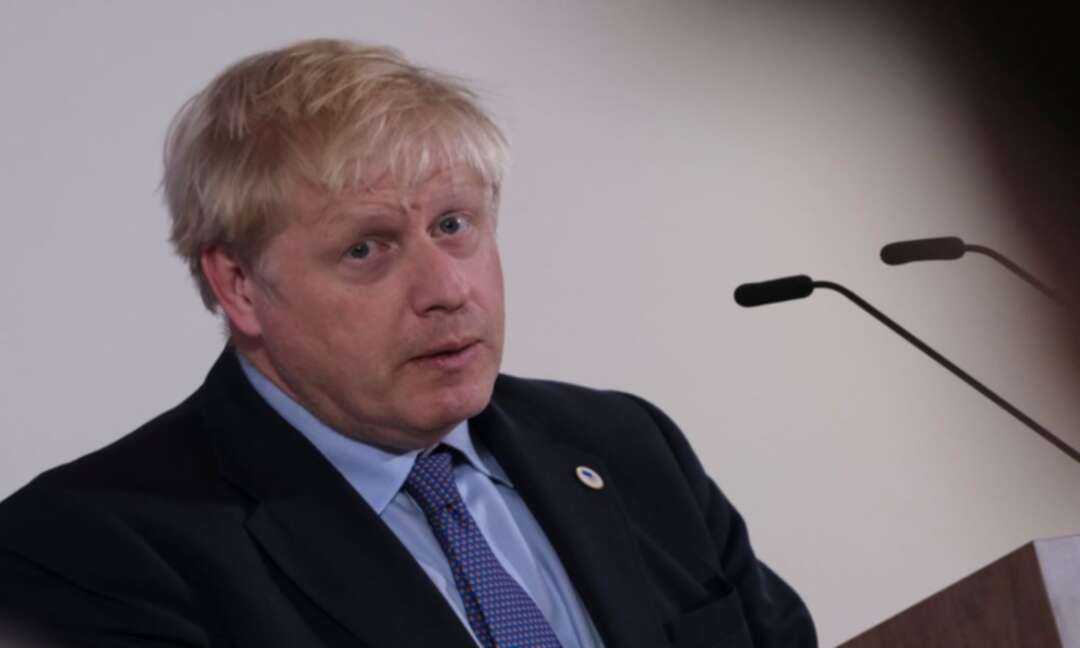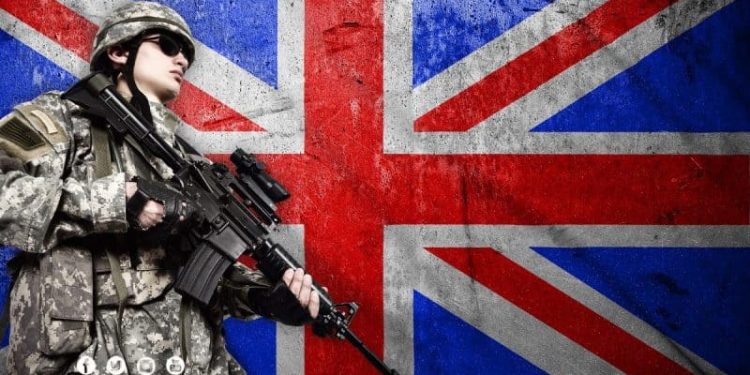-
Boris Johnson: UK can be 'extremely proud' of its role in Afghanistan

The BBC reported that Boris Johnson has said the UK can be "extremely proud" of its role in Afghanistan, despite the situation in the country having "deteriorated".
According to the British broadcast corporation, the UK will evacuate the "vast bulk" of its embassy staff in the coming days as the Taliban continues to advance.
The prime minister said there was "no military solution" after an emergency Cobra meeting on Friday afternoon.
Mr Johnson insisted there was no military solution following the gains made by the Taliban in recent days and said that a team of Home Office officials would be sent to step up efforts to relocate Afghans who worked for British forces in the country.
Read more: British Defense Secretary says US withdrawal agreement from Afghanistan ‘rotten deal’
"It is very difficult obviously, but I think the UK can be extremely proud of what has been done in Afghanistan over the last 20 years," he said.

The prime minister said that thanks to the efforts of the UK armed services there had been no al-Qaeda attacks on the West for "a very long time".
He also added that three million girls and young women in Afghanistan had been educated who otherwise would not have been, during the last 20 years.
"I think we've got to be realistic about the abilities of the UK or any power to impose a military solution, a combat solution in Afghanistan," Mr Johnson said.
"What we certainly can do is work with all our partners in the region and around the world who share an interest with us in preventing Afghanistan from once again becoming a breeding ground for terror."
It should be noted that Secretary Defence Mr Wallace said around 600 troops were being sent to Afghanistan to ensure the safe return of about 500 Foreign Office and other UK government officials, along with around 3,000 British citizens working in other roles, such as security guards for aid agencies.
Source: BBC
You May Also Like
Popular Posts
Caricature
BENEFIT Sponsors BuildHer...
- April 23, 2025
BENEFIT, the Kingdom’s innovator and leading company in Fintech and electronic financial transactions service, has sponsored the BuildHer CityHack 2025 Hackathon, a two-day event spearheaded by the College of Engineering and Technology at the Royal University for Women (RUW).
Aimed at secondary school students, the event brought together a distinguished group of academic professionals and technology experts to mentor and inspire young participants.
More than 100 high school students from across the Kingdom of Bahrain took part in the hackathon, which featured an intensive programme of training workshops and hands-on sessions. These activities were tailored to enhance participants’ critical thinking, collaborative problem-solving, and team-building capabilities, while also encouraging the development of practical and sustainable solutions to contemporary challenges using modern technological tools.
BENEFIT’s Chief Executive Mr. Abdulwahed AlJanahi, commented: “Our support for this educational hackathon reflects our long-term strategic vision to nurture the talents of emerging national youth and empower the next generation of accomplished female leaders in technology. By fostering creativity and innovation, we aim to contribute meaningfully to Bahrain’s comprehensive development goals and align with the aspirations outlined in the Kingdom’s Vision 2030—an ambition in which BENEFIT plays a central role.”
Professor Riyadh Yousif Hamzah, President of the Royal University for Women, commented: “This initiative reflects our commitment to advancing women in STEM fields. We're cultivating a generation of creative, solution-driven female leaders who will drive national development. Our partnership with BENEFIT exemplifies the powerful synergy between academia and private sector in supporting educational innovation.”
Hanan Abdulla Hasan, Senior Manager, PR & Communication at BENEFIT, said: “We are honoured to collaborate with RUW in supporting this remarkable technology-focused event. It highlights our commitment to social responsibility, and our ongoing efforts to enhance the digital and innovation capabilities of young Bahraini women and foster their ability to harness technological tools in the service of a smarter, more sustainable future.”
For his part, Dr. Humam ElAgha, Acting Dean of the College of Engineering and Technology at the University, said: “BuildHer CityHack 2025 embodies our hands-on approach to education. By tackling real-world problems through creative thinking and sustainable solutions, we're preparing women to thrive in the knowledge economy – a cornerstone of the University's vision.”
opinion
Report
ads
Newsletter
Subscribe to our mailing list to get the new updates!






















